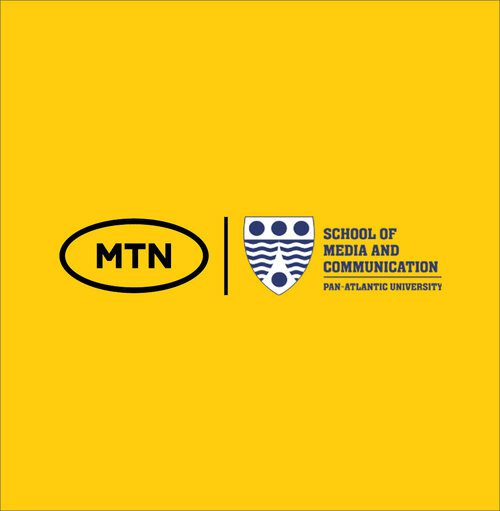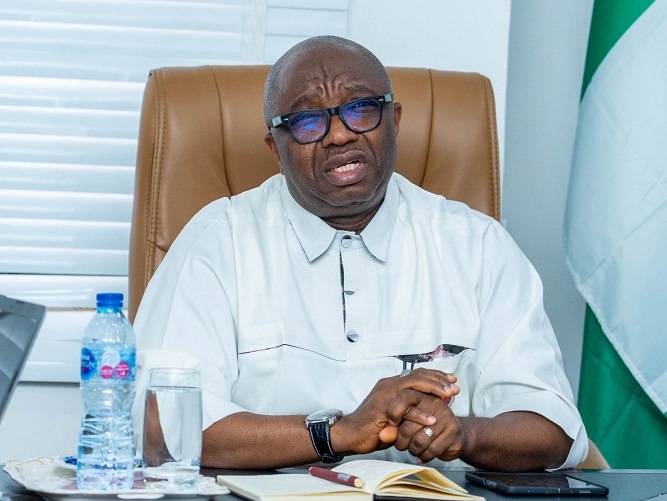Telecom
Telecoms Sector Contributes N2.3trn to Q2 GDP

Despite the economic impact of the COVID-19 pandemic, Nigeria’s telecommunications and information services sectors remain the enablers of growth, with N2.3 trillion or 14.30 percent Gross Domestic Product (GDP) contribution in the second quarter of 2020

Prof Umar Danbatta, EVC, NCC
Data available to The Guardian show that the contribution of the sector translates to N2.272 trillion, up from N1.821 trillion in the first quarter of the year.
This, according to figures released by the National Bureau of Statistics (NBS), indicates an increase of 31.43 percent.
While the entire Information and Communication Technology (ICT) industry recorded 17.83 percent in the second quarter, the 14.30 percent contribution of the telecoms sub-sector was unprecedented, far and above oil and gas, and other non-oil sectors’.
Checks showed that, in 2015, telecoms’ contribution to GDP stood at eight percent and has grown significantly quarter-on-quarter and year-on-year to reach the current milestone of 14.30 percent.
Meanwhile, industry stakeholders attributed the second quarter contribution of the telecoms sector, which represents a leap from the 10.88 per cent in Q1 2020, to the sound regulatory environment enthroned by the Nigerian Communications Commission (NCC).
The stakeholders, including the Association of Telecoms Companies of Nigeria, (ATCON), Association of Licensed Telecoms Operators (ALTON), and the National Association of Telecoms Subscribers (NATCOMS), who spoke with The Guardian on the matter, commended the regulatory framework driving the digital frontiers in the last five years.
The ALTON Chairman, Gbenga Adebayo, thanked all industry players for their resilience and consistency of purpose.
Adebayo hinged the growth on so many factors including the investor-friendly policy and regulatory environment championed by the leadership of NCC, the commitment of all stakeholders, consistent investment in network maintenance and expansion, and sacrifice by sector operators.
To sustain this growth, the ALTON Chairman said the country should continue to invest in network expansion and maintenance operations, access to foreign exchange to procure network critical equipment, consistency in policy and policy environment.
Adebayo said there should be access to spectrum and friendly policies around its allocation, assignment and cooperation between the stakeholders.
ATCON President, Olusola Teniola, said: “telecoms industry has remained bullish owing to the quality of leadership at the helm of affairs at the Commission.”
He added that NCC had become a reference point in telecom regulatory ecosystem in Africa and beyond.
In the same vein, President of National Association of Telecoms Subscribers of Nigeria (NATCOMS) Adeolu Ogunbajo, said the proactive regulatory approach of Danbatta has helped made telecoms “the oxygen that keeps economic activities afloat during the lockdowns and consumers are appreciative of the fact that the Commission, working with its supervising Ministry, didn’t allow the consumer to suffer serious disruption to quality of service and quality of experience.”
Checks showed that effective regulatory regime, backed by various initiatives of the Commission and efforts of the supervising Ministry of Communications and Digital Economy at addressing industry challenges, is providing the needed digital valves that have supported the economy from collapse, since the outbreak of COVID-19 pandemic in the country.
The increase in broadband penetration, Internet usage, number of access to telephone and several other initiatives by the Commission, especially in the areas of driving tech innovations, employment creation, promotion of digital inclusiveness, which are policy directions of NCC, an industry regulator, has, in the last five years, boosted the sector’s contribution to GDP.
These policy activities have also enhanced the growth of digital-based activities across other sectors of the economy increasing efficiency and effectiveness in economic operations.
Speaking recently at the Commission’s first virtual telecoms consumer parliament (VTCP), the Executive Vice Chairman of NCC, Prof. Umar Garba Danbatta, noted that the NCC, ensured has always been innovative and proactive in its regulatory activities by ensuring that the economy remains afloat despite the restrictions occasioned by the pandemic.
Telecom
How MIP Is Making a Difference in The Media Landscape

MTN Media Innovation Program (MIP), a six-month fully-funded certificate fellowship designed for media professionals, is redefining journalism and content creation in Nigeria.

Now in its fourth year, MIP, launched by MTN Nigeria in partnership with the School of Media and Communication (SMC), Pan-Atlantic University, is empowering journalists, broadcasters, and content creators with the tools to adapt, innovate, and thrive in today’s challenging media landscape.
Despite promising forecast that the market value of the Nigerian entertainment and media industry will grow from US$9.0bn in 2023 to US$13.6bn in 2028, the media sector has since grappled with issues such as limited access to training, financial instability, and the rapid decline of traditional revenue models. With digital platforms disrupting how news is consumed and monetised, journalists and media owners must rethink their approach.
MIP provides a structured learning environment where media professionals gain first-hand exposure to new industry trends, digital transformation, and the intersection of media and ICT. From data journalism to audience engagement strategies, participants leave the program with actionable skills that are shaping the future of storytelling in Nigeria.
A standout feature of MIP is its international study visit to South Africa, where fellows engage with leading media institutions, visit MTN Group’s headquarters, and participate in hands-on training sessions at the University of Johannesburg. This global exposure provides invaluable insights into how media practitioners in other markets are leveraging technology and innovation to stay ahead.
For many participants, this has been a career-defining experience. Juliet Tontoye, Vice-President, MIP Cohort 3, describes the program as ‘a turning point.’ “When we share our experiences with our colleagues at our respective media houses, we realize that the program’s benefits and impact are easier to experience than explain. In the past three months, MIP has been such an eye-opening journey. It’s a fellowship every media professional needs to experience. MTN has been such a wonderful host and we know this costs millions of Naira. However, we believe it will have a profound impact on our colleagues.”
Beyond individual impact, MIP is helping reshape the media industry by fostering collaboration and leadership. By bridging the gap between traditional journalism and digital innovation, the program ensures that fellows graduate not just as better storytellers, but as industry disruptors with a mission to create lasting change. The program’s 60 alumni, now spread across Nigeria’s top media organisations, are applying their knowledge to revolutionise newsrooms, create digital-first content strategies, and introduce sustainable business models.
According to Tobechukwu Okigbo, Chief Corporate Services & Sustainability Officer, MTN Nigeria: “When we launched MIP in 2022, our goal was to enhance media professionals’ reporting capabilities and deepen their understanding of the technology sector, empowering them to become true media innovators. Seeing the impact of the programme over the past three years has been both inspiring and humbling. We are proud to continue this initiative and invite all eligible media professionals and content creators to seize this opportunity by applying for the fourth cohort.”
Similarly, the Dean of the School of Media and Communication, Pan-Atlantic University, stated: “SMC will leverage its extensive experience in training media professionals to equip this next cohort. And we will do this with our usual emphasis on creativity and ethics.”
With over 60 fellows trained since its inception in 2022, MIP is building a network of media advocates who are championing ethical reporting, storytelling innovation, and the smart use of technology in journalism.
MTN Nigeria has invested over NGN 300 Million in building Nigeria’s media industry in the past three years through its partnership with PAU.
As applications open for the 2025 cohort, the program continues to attract top-tier talent eager to take their careers to the next level and contribute to the transformation of Nigerian media.
For journalists, broadcasters, and content creators looking to future-proof their careers, the MTN Media Innovation Program is more than just a fellowship—it is a movement that is reshaping the industry, one fellow at a time.
Interested journalists, bloggers, and content creators can apply for the MIP 2025 at https://bit.ly/MTN_MIP2025.
Telecom
Nigeria Heads Anglophone Data Protection Committee

Dr. Vincent Olatunji, Chief Executive Officer of the Nigeria Data Protection Commission, has been appointed as the Chair of the Anglophone Countries Committee of the Network of Africa Data Protection Authorities (NADPA).

The appointment, confirmed on April 2, underscores Nigeria’s leadership in Africa’s data privacy efforts. Speaking after his confirmation, Olatunji urged members to prioritize collective efforts in protecting the privacy rights of over 1.4 billion Africans.
Meanwhile, Nigeria will host the 2025 NADPA Annual General Meeting and Conference in May. Themed “Balancing Innovation in Africa: Data Protection and Privacy in Emerging Technologies,” the event will showcase Nigeria’s strides in digital economy development under President Bola Ahmed Tinubu’s administration.
Telecom
NCC Asks Consumers to Monitor Data Usage to Authenticate Consumption

Nigerian Communications Commission (NCC) has charged the over 174 million telecoms subscribers in the country to constantly monitor their data usage to authenticate their consumption level.

This follows concerns being raised by telecoms consumers about the rapidity of data depletion on their devices.
The Commission particularly enjoined the consumers to always contact their service providers to make requests for cases of discrepancies noted in their data usage.
While the consumers are expected to contact their service providers to request for their usage history/statement where inconsistency exists in their data usage as first step, the Commission said they may also escalate such issues to the Commission through its toll-free Number 622 and social media platforms, especially if their requests are not satisfactorily handled.
The Commission, which also made some clarifications regarding the concerns being raised by the consumers around data usage, said the need to inform the consumers on their concerns is part of its commitment to protect and appropriately inform and educate the telecom consumer on industry issues.
Making further clarifications around data speed and usage, the Commission said data speed is the speed at which data is transferred between two devices, measured in megabits per second (Mbps or mbps), stressing that given the spread of Internet services and the immense investment in the sector, data rates have continued to increase and users may be unaware of how to measure data speed.
The telecoms regulator explained further that websites such as www.fast.com also provide an easy way for consumers to measure Internet speed on any device at any location.
“The higher the data speed, the quicker pages load-downloads and uploads-occur and expectedly, the quicker data bundles are exhausted. So, as telecom consumers are able to do more on devices in less time, some consumers’ devices & network service providers make it possible to limit data speed to help users manage data usage better.
“In any case, most devices now include functions to measure data used by devices and it is imperative that users monitor same to authenticate data usage, such as applications left running on devices. Therefore, where discrepancies occur users may contact their service provider to request for their usage history/statement. If request is not dealt with satisfactorily then, users can contact NCC by calling 622 or engage the Commission via its social media platforms”.
It added that the data usage experience is a function of location, network equipment and users connected in a particular location.

 Broadcasting2 days ago
Broadcasting2 days agoDStv Revenue Plunges as MultiChoice Loses Nearly 4m Subscribers

 News1 day ago
News1 day agoNIPSS Projects Petrol Prices to Hit ₦750/Litre Before Year’s End!

 Telecom2 days ago
Telecom2 days agoNCC Asks Consumers to Monitor Data Usage to Authenticate Consumption

 Telecom2 days ago
Telecom2 days agoPhone Theft: AMCODET Urges Mandatory Registration @ Point of Purchase

 News2 days ago
News2 days agoTikTok Sale Deal Expected Before April 5 Deadline – Trump

 News2 days ago
News2 days agoQuestions Over House of Reps Threat to Arrest NIMC DG

 E-Financial2 days ago
E-Financial2 days agoFidelity Bank Records a 210.0% Growth in PBT to N385.2bn

 Telecom2 days ago
Telecom2 days agoCassava and Microsoft Boost Youth Employment in Green Tech























